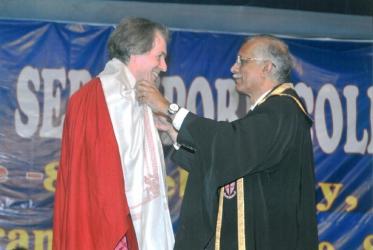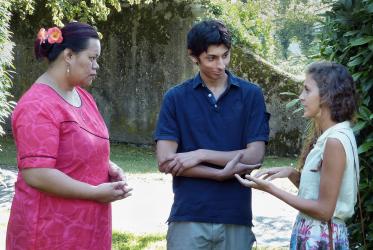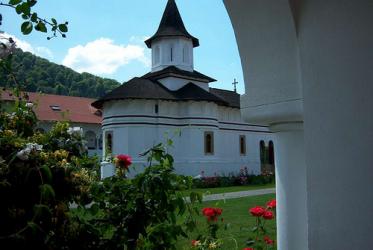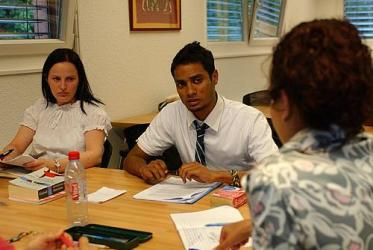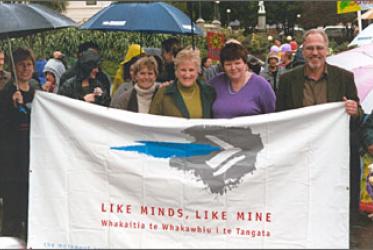Displaying 81 - 97 of 97
After Busan: A pilgrimage of justice and peace
29 January 2014
Youth build multi-faith community in Bossey
28 August 2013
European theologians discuss Christian witness
01 November 2012
Churches say “No more violence in the name of God”
05 March 2012
Theological education with migrant churches
17 December 2010
WCC fills six key staff leadership positions
18 April 2007
Bossey Institute strengthens teaching faculty
01 March 2007
New WCC focus on mental health
26 January 2007
